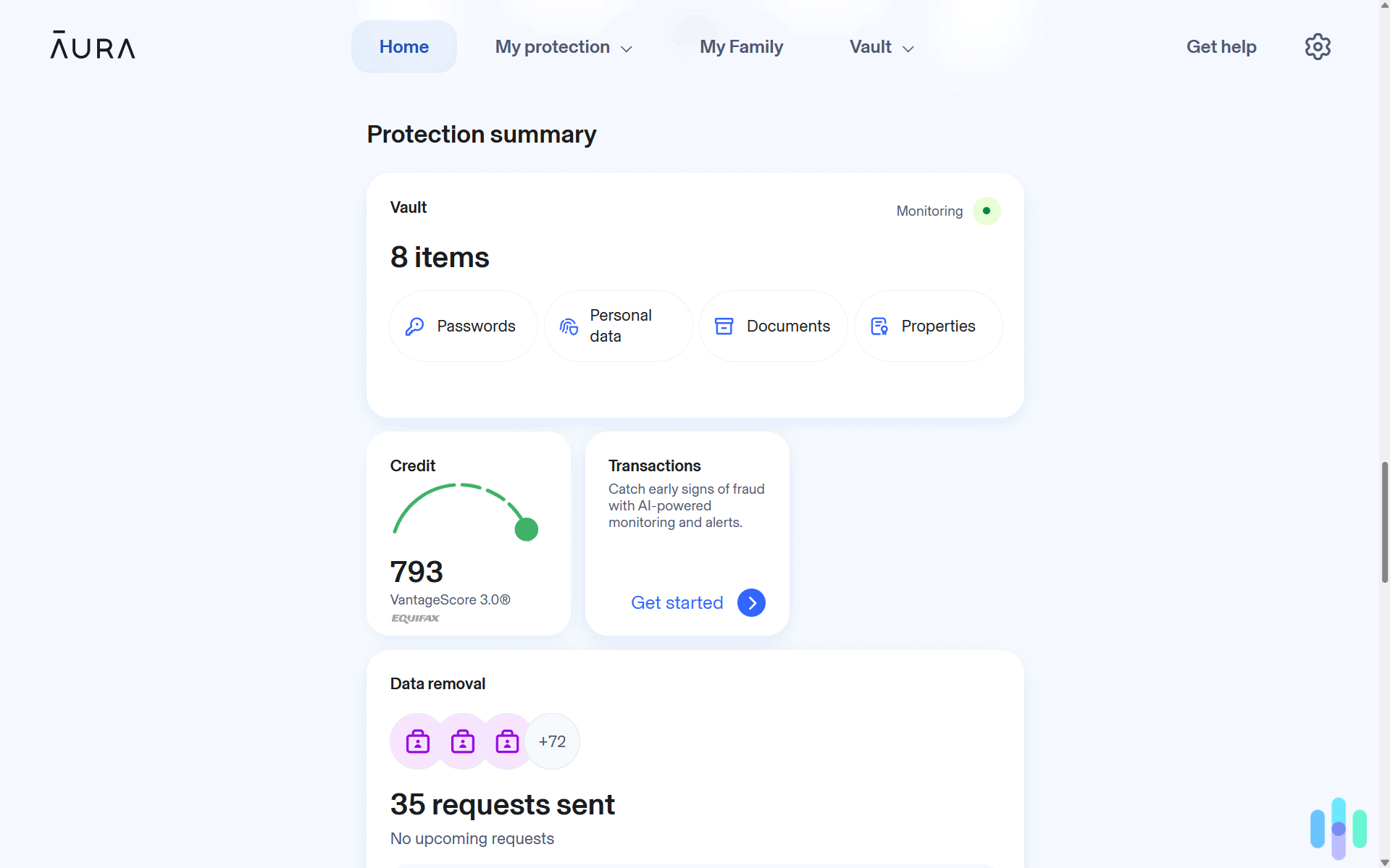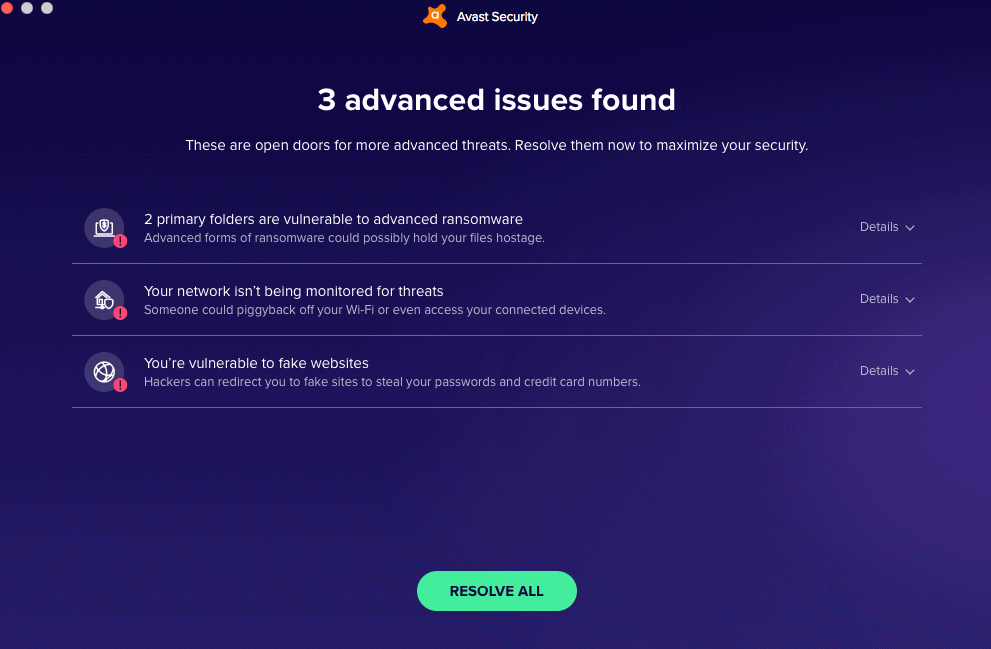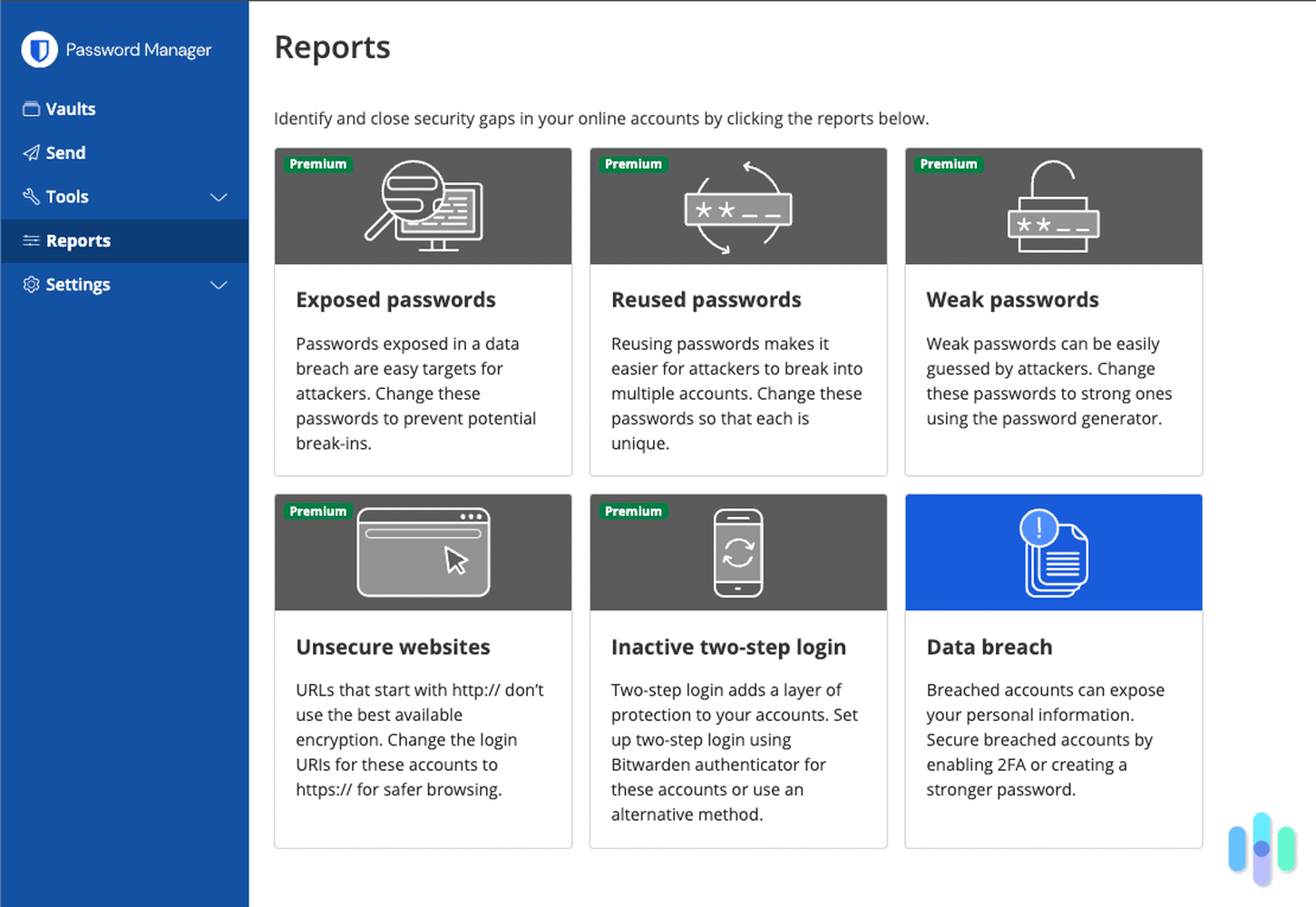Editor’s Note: We ranked ADT the best wireless home security system. It’s secure even during power outages, and you can easily add devices whenever you need extra protection. Learn more in our ADT review.
You don’t technically need Wi-Fi to run wireless security cameras, but you’ll be missing out on the features that make them so convenient in the first place. You won’t be able to receive notifications when your camera detects motion, check in on live footage, or to turn your camera off and on remotely, among other capabilities. But if you’re looking for basic surveillance without the bells and whistles—or maybe you’re concerned about privacy and hacking—then an offline wireless camera might be exactly what you need.
The Best Security Camera Features Require Internet
Before we go any further, we’d like to note that some of the best features of wireless cameras require an internet connection. Cloud video recording saves your footage off-site for safekeeping, remote livestreaming lets you check on your property from anywhere in the world, and instant alert notifications keep you informed the moment something happens. Without internet, these conveniences simply aren't possible. The best wireless security camera brands (see below) offer those features, but only if you keep your cameras online. That being said, there are alternatives to these features, so keep reading to see how to use wireless cameras without an internet connection.
Wireless Cameras That Work Offline
Wireless security cameras don’t necessarily require the internet. Rather, there are a number of security cameras that can record their footage locally onto micro-SD cards or hard drives so it can be viewed later. Unlike cameras like the Ring Indoor Cam, a wireless camera controllable through the Ring— Always Home app, many cameras from Reolink, for example, aren’t connected to the web at all. The Reolink Go 2, for instance, uses 4G LTE cellular data instead of Wi-Fi, making it perfect for remote locations where internet isn’t available. Similarly, the Arlo Go 2 offers LTE connectivity and can operate completely independently of your home network.
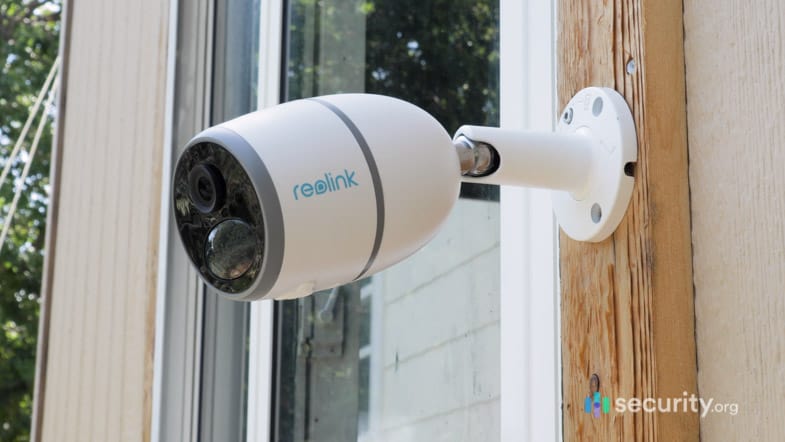
Pros and Cons of Wireless Cameras Without Internet
Wireless cameras without internet capabilities lack some core functionality that we always look for in a security camera like push notifications. You might even think that no internet connectivity only comes with drawbacks. But, that lack of capabilities comes with a few key advantages too like protection against hacking and full functionality even during power outages. It’s really about weighing what matters most to you—convenience or complete independence from the web.
Did You Know: You can get an entirely wireless home security system. While most require an internet connection, some function without Wi-Fi entirely by using cellular data instead. Find out more in our guide to the best wireless home security systems.
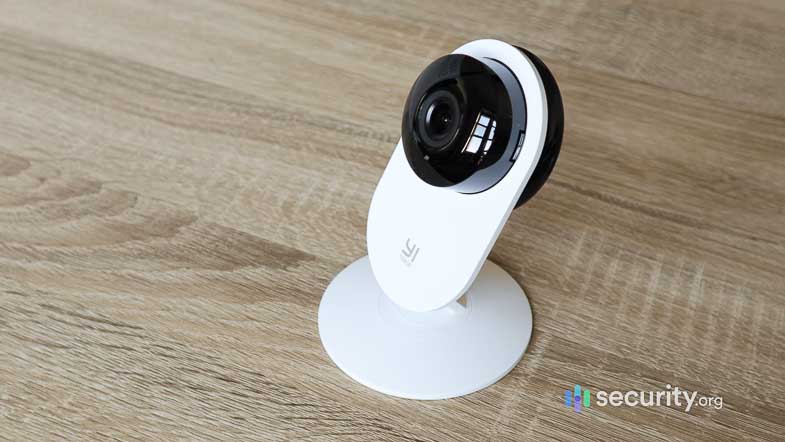
Pros
- No hackings: If something’s not connected to the internet, then there’s no chance of a digital data breach, as we’ve seen with cameras from Ring1 in the past.
- No fees: Many web-connected cameras charge fees for cloud storage, usually monthly or yearly. Without cloud storage, you’re looking at a one-time purchase with no surprise bills showing up every month. Your footage stays on a local SD card or hard drive that you control.
- On during power outages: A huge advantage of wireless cameras, in general, is that they’re not dependent on your home’s power, so they’ll continue to work even in a blackout. Wireless cameras without internet retain all of their functionality because they don’t depend on your Wi-Fi either.
- No effect on bandwidth: Unlike WiFi-connected cameras, IP cameras won’t slow down your internet by taking up precious bandwidth. This is especially helpful if you’re working from home or have multiple people streaming content simultaneously.
Cons
- Limited options: Although there are some IP cameras on the market, the majority are internet-connected. You’ll find yourself limited to a handful of models from brands like Reolink, Arlo, and a few specialized manufacturers.
- Can’t control or access footage remotely: Without the internet, you can’t check in on a live stream from your phone or arm your camera remotely. Forget about peeking at your front door while you’re at work or on vacation.
- No push notifications: You also won’t be notified if the camera detects motion or a person, depending on its artificial intelligence capabilities. You’ll only know what happened when you physically check the footage.
- No cloud storage: While the footage will be saved on some form of local storage, it won’t be uploaded to cloud storage at all, so if you want to create redundancy, you’ll have to do so manually.
- The battery will run out: A disadvantage of all wireless cameras is that you have to either recharge or replace the battery eventually (unless it’s one of the best solar-powered security cameras, but that’s relatively rare).
Pro Tip: Even though your offline camera doesn’t automatically upload to the cloud, we always recommend periodically backing up important footage to an external drive or cloud service manually. Trust us, you don’t want to lose crucial evidence because your SD card got corrupted.
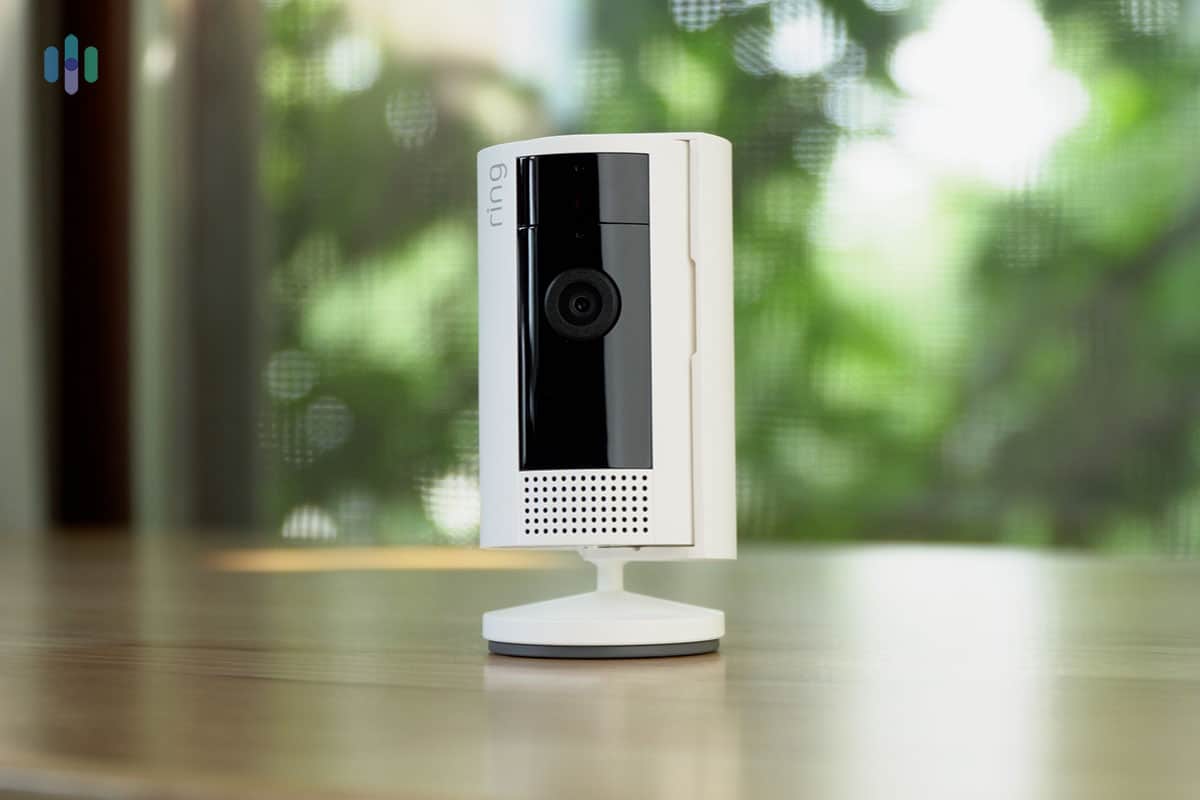
How To Connect Wireless Cameras To Computers Without the Internet
Okay, so you want to view your camera footage on your computer without internet? It’s definitely doable, but you’ll need to get a bit technical. This is where wireless cameras without the internet struggle. They lack any easy method of viewing footage or transferring footage to your computer. If you want to view your camera’s footage on a computer without using the internet, it is possible; however, it will require some additional devices and cables such as:
- Router
- Ethernet cables
- Power adapter
- UTP (network) cables.
Here’s a simple way to do it using UTP cables:
- Connect your camera directly to your laptop using the UTP cable.
- Configure the camera’s IP address to match your laptop’s network range.
- Open your browser or the camera’s software and type in the camera’s IP address to access your footage.
Types of Home Security Cameras
Zooming out a bit (no pun intended), we wanted to take a closer look at wired, wireless and wire-free cameras. Understanding these differences is crucial because the terminology can be confusing—”wireless” doesn’t always mean what you think it means.
Wired
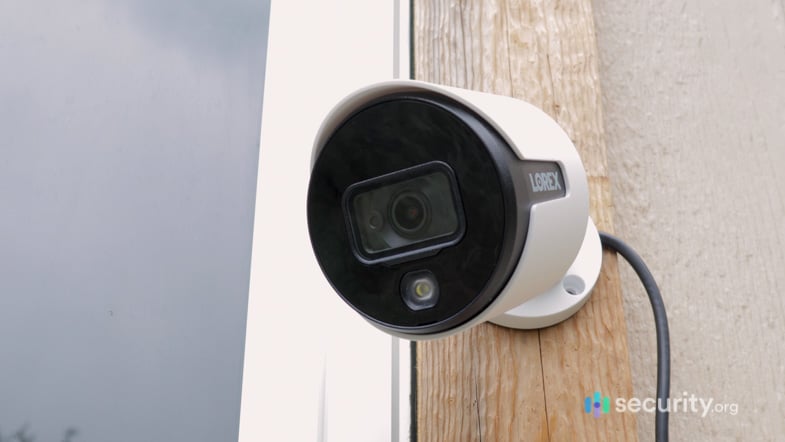
Wired cameras are cameras that need to be either plugged in or hardwired to power. Their main advantage is that the user never has to worry about the batteries running out, and 24/7 continuous recording is a possibility. Plus, they tend to offer the most reliable connection and best video quality since they’re not dependent on wireless signals. Plus, hardwired cameras are the most difficult to install, and if the power in your home goes out, wired cameras will go out as well.
Wireless
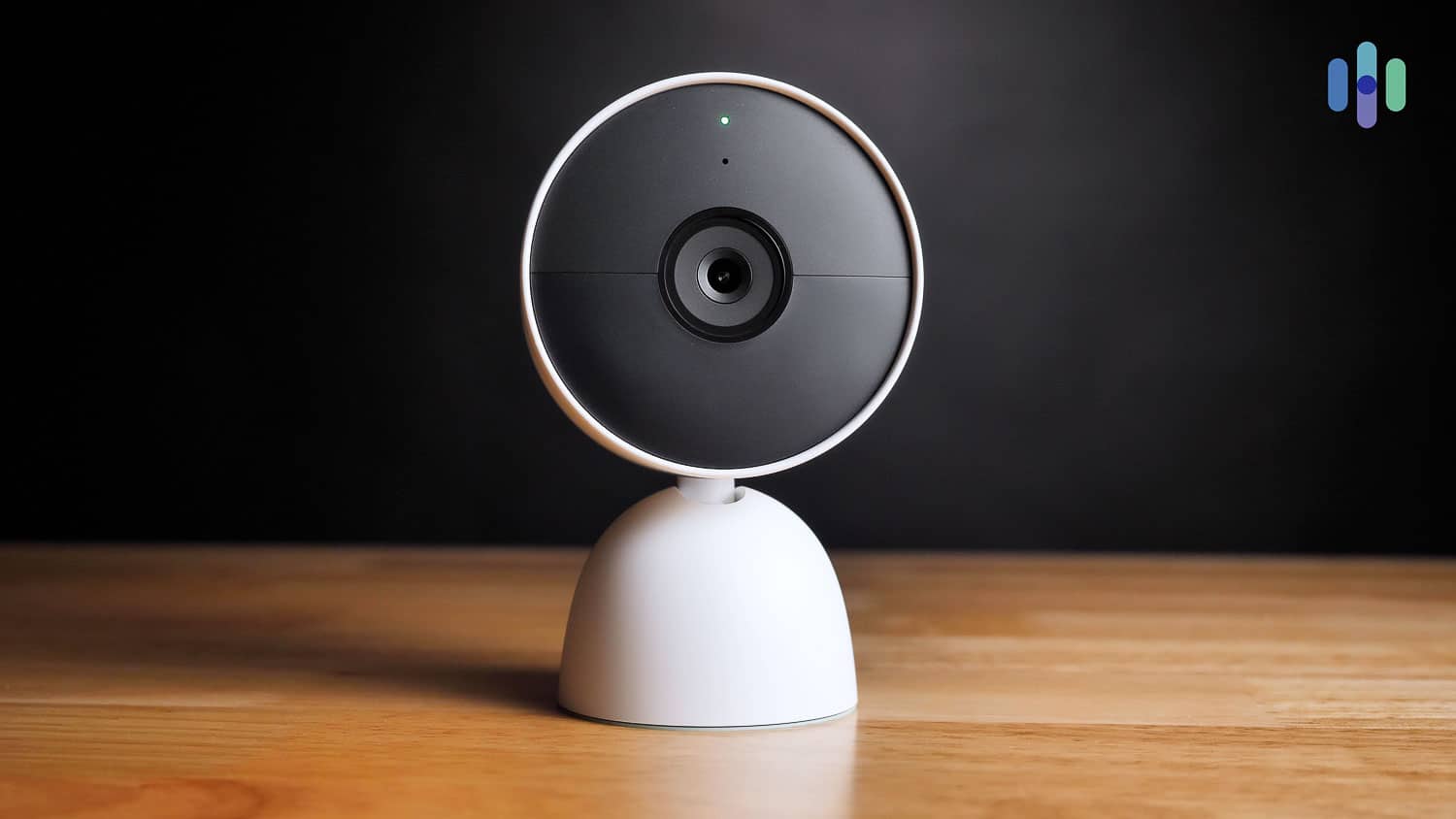
As opposed to wire-free cameras, wireless cameras have wires that connect the camera to its DVR, while wire-free has, you guessed it, no wires whatsoever. The advantage of wireless cameras is easy installation, plus the fact that they will stay on during a power outage. They’re perfect for renters who can’t drill holes or run cables through walls. However, you will have to worry about replacing or recharging batteries, unless it’s solar-powered (a rarity). Plus, you won’t be able to record continuously 24/7 unless it’s plugged into its DVR. Still, many newer models offer impressive battery life. Some last up to 6 months on a single charge with typical use.
FYI: Wireless cameras aren’t technically completely wireless, as they have a wire that connects the camera to its DVR.
Wire-Free
While they can’t record continuously, wire-free cameras are easy to install and require no wires at all.3 You can literally stick them anywhere—on a fence post, tree, or even move them around as needed. They’re the ultimate in flexibility. For neat freaks like us, the lack of wires is a must in our minimalist home. However, if you want that continuous recording, choose other wireless or wired cameras.
Recap
While you can absolutely use wireless security cameras without internet, you’re trading convenience for independence. That being said, we understand the fear of hacking and data breaches, which we see so commonly with IoT devices. If privacy is your top concern or you’re securing a location without reliable internet, offline cameras make perfect sense. But for most folks, the smart features of connected cameras are worth the minimal security risk—especially with proper password protection and two-factor authentication.
Frequently Asked Questions
Hold up! If you want to learn more, here are the most common questions we get about wireless IP cameras.
-
Can wireless cameras work without the internet?
Yes, some wireless cameras can work without the internet, including models from Reolink like the Go 2 and Arlo’s Go 2. These cameras use cellular data or local storage instead of Wi-Fi. However, most modern wireless cameras are designed to work with internet connectivity for full functionality.
-
How do I install a wireless security camera without the internet?
To install a wireless security camera without the internet, you simply place it on a flat surface or mount it to a ceiling or wall. You may also need to place a hard drive somewhere, which may connect to the camera via a cable unless it’s wire-free. However, if the camera has a slot for a micro-SD card, you won’t need a hard drive. Instead, you’ll put the micro-SD card in its slot, not requiring any wires.
-
What security cameras work without Wi-Fi?
Several security cameras work without Wi-Fi, including the Arlo Go 2, Reolink Go PT Plus, and various trail cameras from brands like Reconyx and Stealth Cam. These typically use cellular data (4G LTE or 5G) or simply record to local storage.
-
Which is better, wired or wireless security cameras?
Wired and wireless cameras aren’t inherently better than one another. Rather, it’s a matter of personal preference and needs; while wireless cameras are easier to install and less cluttered, the user will need to recharge or replace the battery at points. Wired cameras, on the other hand, don’t rely on batteries, but are dependent on a home’s power, so they might not work in a power outage. Consider your specific situation: renters typically prefer wireless, homeowners might opt for wired for reliability, and those in remote locations might need cellular-enabled cameras regardless of wiring.






